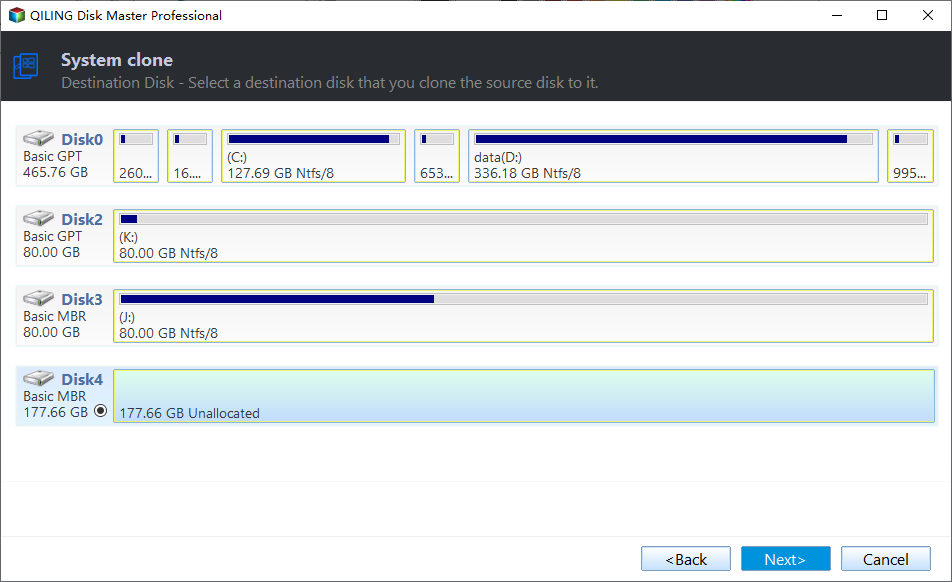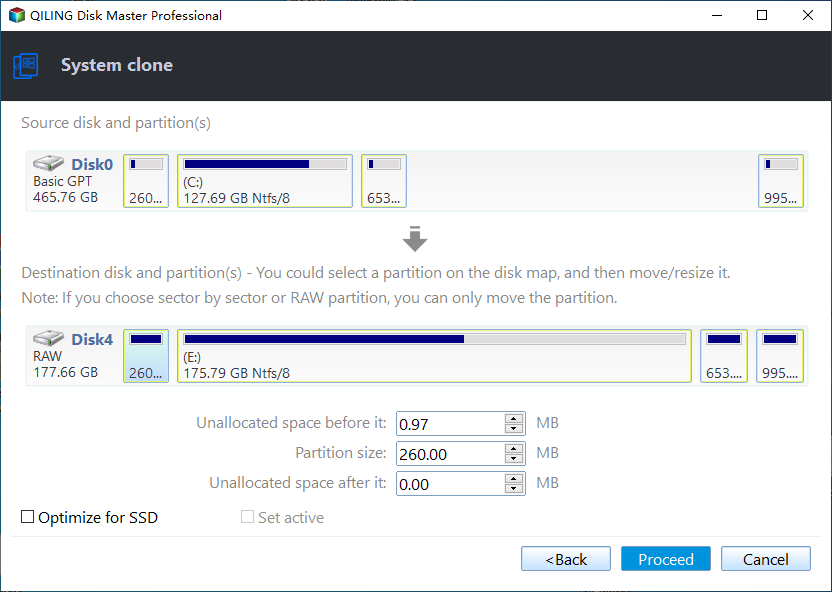How to Migrate Windows 8/8.1 to SSD with Secure Boot
Why Migrate Windows 8 to SSD?
Previously, many computers come with HDD (Hard Disk Drive). HDD is a metal platter with magnetic coating. When it spins, the data can be read and written. However, because of this construction, HDD may break if it is suffering a heavy shock. Besides, working with HDD will make some noise because of the spinning. What's worse, HDD works slowly.
In order to optimize your Windows 8 computer's performance, migrating Windows 8 from HDD to SSD could be the best way. SSD (Solid State Drive) is a kind of storage disk which is made of solid state electronic storage chip. Its memory chip consists of flash chip and DRAM chip. Compared with HDD, it has many obvious advantages.
✿ It stores data on the memory chip, so there is no spinning noise.
✿ The data will be safer on the SSD.
✿ SSD can work under a more serious environment. The SSD can work normally between -10 to 70℃ while HDD can only work between 5 to 50℃.
✿ The data on SSD will be read and written faster than HDD. As a result, the computer will perform better.
Best System Migration Software for Windows 8/8.1
Once you want to replace HDD with SSD to improve your computer's performance, you'd better move Windows 8/8.1 to the SSD. This could save a lot of trouble. After all, you don't need to install a system again. To transfer Windows 8/8.1 to SSD smoothly, you can use a third party software like Qiling Disk Master.
Qiling Disk Master enables you to migrate Windows 8 to SSD through System Clone or Disk Clone functionality. System Clone can help you migrate the system and the files related to booting the system. If you want to migrate the OS as well as the data on the system disk, you can perform Disk Clone.
With the help of Qiling Disk Master, transferring Windows 8/8.1 to SSD will be a piece of cake. The concise interface makes it easy to use. It will automatically select the system drive and boot related files, so you don't have to worry about not cloning important system files.
Also, its Intelligent Clone feature allows you to clone larger hard drive to smaller SSD. Read on to learn how to migrate Windows 8 to SSD with this powerful software.
Migrate Windows 8/8.1 to SSD with Qiling Disk Master
Here is the step-by-step guide on how to migrate Windows to SSD. It is not only suitable for Windows 8/8.1, but also Windows 11/10/7/Vista/XP.
- Install the SSD to your computer and make sure it can be detected.
- Download, install and launch Qiling Disk Master Professional. Click "Clone" to open the clone main interface. Select "System Clone" to clone Windows 8 to SSD.
- The system has been selected by default, so you will reach the following interface. Select the destination disk - the SSD you prepared before. Click Next.
- Confirm the operation. Tick SSD Alignment to improve the performance of the target SSD, then click Proceed.
Note:
✡ Sector by sector clone: it will clone every byte of the system whether it has been used or not. It will take more time and occupy more space.
As you see, migrating Windows 8/8.1 to SSD with Qiling Disk Master just requires a few clicks. Here you only migrate the system to SSD. You can also select Disk Clone at step 2 to move the whole disk to SSD.
To Sum Up
After reading this article, I believe you may know how to migrate Windows 8 to SSD. With the help of Qiling Disk Master, you can complete this operation in just 4 steps. It also ensures that you won't encounter any startup issues. If you are a Windows Server user, you can also perform System Clone in Qiling Disk Master Server.
Besides the clone function, it also has backup, restore, synchronization and other functions. You can also use it to create a bootable disk to start your computer in the event of a system crash or other system problems.
Related Articles
- Easiest Way to Clone Hard Drive in Windows 8, 8.1 to New HDD, SSD
Want to clone hard drive in Windows 8/8.1 but do not know how? This guide will tell you the easiest method to clone Windows 8/8.1 to new hard drive. - How to Transfer Windows 8/8.1 Installation from HDD to SSD?
Transferring/Moving Windows 8/8.1 installation from HDD to SSD can optimize the performance of computer effectively. But how to do it? Qiling Disk Master Standard will bring a very simple way. - Windows 8/8.1 Backup, Restore, Clone and Images Resources
- (2022) Migrate Dell OS with Dell Migrate or An Alternative
Using system migration software, you can simply solve the problem of upgrading system disks or changing computers when there is a need to migrate OS or other data.


